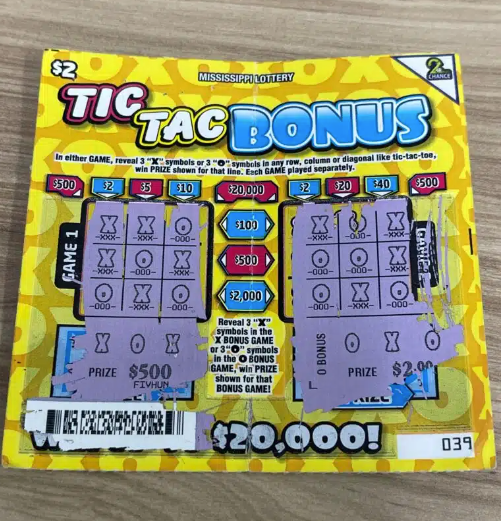Is NCLB a setup for failure?
Published 12:01 am Sunday, October 9, 2011

ERIC SHELTON/THE NATCHEZ DEMOCRAT — McLaurin Elementary’s Katie Wesley explains the purpose of a data board to her third-grade math class Friday. Area public schools now publicly track their progress on standardized tests. The emphasis became necessary, administrators say, as a result of the No Child Left Behind act.
NATCHEZ — Experienced educators admit there may be light at the end of the No Child Left Behind tunnel for the first time in 10 years.
The federal legislation that governs how public schools must perform isn’t all bad or all good, but it’s simply not alright as is, local educators believe.
Area administrators and teachers say No Child Left Behind sometimes limits a teacher’s freedom to teach their students and seems to set schools up for failure.
The federal government has begun to acknowledge problems with the Bush-era legislation, and the Obama administration announced last month that states will be allowed to ask the U.S. Department of Education to be exempted from some of the law’s requirements if they meet certain conditions.
The administration says it is acting because Congress has been slow to address the issues by rewriting the law, which has been due for a rewrite since 2007.
Education Secretary Arne Duncan has warned that 82 percent of schools next year could fail to reach proficiency requirements and thus be labeled “failures,” although some experts questioned the figure.
Neither Louisiana or Mississippi has made public announcements about how the Obama administration’s announcement may be implemented in the states.
Unrealistic expectations
McLaurin Elementary Principal Alice Morrison said NCLB carries expectations that not every child can meet.
“The fact that every child (will be) 100 percent proficient by 2014 (is unrealistic) within itself. Every child is not the same, and they don’t learn at the same rate of speed,” Morrison said.
Morrison said some students require reinforcement of certain skills they should have already learned in previous grade levels, for instance.
Concordia Parish School District Academic Director Paul Nelson said a challenge with meeting federally measured Annual Yearly Progress is lopsided weight given to the rate of growth in subgroups.
Subgroups include, for instance, minorities, students receiving free and reduced lunches and special education students.
At some schools in the parish, only a handful of students make up these subgroups, and one student may be included in several subgroups.
If a black student receiving free and reduced lunches who also requires special education instruction fails to meet his or her growth — that student can throw off each subgroup and in turn negatively affect the whole district’s AYP.
“You’ve got so many different things that you’re trying to juggle in the air at the same time,” Nelson said.
Nelson said Louisiana’s system — a response to the federal system — seems to be punitive in nature.
“There are many ways to fail and really only one way to make it.”
Teaching to the test
Morrison said with so much emphasis on standardized testing, it is difficult for teachers to avoid teaching to the test.
“When I listen to my teachers here and at conferences, it’s like the fun (of teaching) is taken away,” Morrison said.
Nelson said teaching to the test is in some cases an inevitable driver of instruction.
“People will say with accountability that we teach to the test. Unfortunately that’s probably true,” Nelson said.
“It only makes sense to try to teach your kids (material they will be tested on), and that has an effect to some degree on instruction.”
McLaurin Assistant Principal Daisy West said when teachers and administrators feel pressure because of testing, the focus of the goal of educating children can get lost, so she and Morrison encourage teachers not to let the pressure overtake them.
“When your mind is on the results of the (Mississippi Curriculum Test, Second Edition), you’re mind is on teaching to the test,” West said.
Morrison said she tries to encourage her teachers to focus on teaching skills, and those skills can then be applied to the MCT2 or any other setting.
Driven by data
Morrison said an upside to NCLB is the access administrators, teachers and students have to testing data, which can guide instruction.
“(NCLB) made us focus more on data, analyzing the data and making decisions based on what we see,” Morrison said.
At McLaurin and other Natchez-Adams School District schools, students have access to data boards, which display their class and individual test results.
In most cases, students can identify their individual scores through a key, so the classes can see how they compare to their classmates without displaying names.
Exposure to the data helps everyone in the system become accountable from the superintendent down to individual students, NASD administrators say.
NCLB also brought a higher standard of qualifications for teachers, which Nelson said can be a challenge in small towns and rural areas like Concordia Parish with less access to colleges and universities.
Teachers can earn qualifications by passing subject area tests, taking college courses or by earning continuing learning units at workshops, Nelson said.
“If a (math) teacher knows more about math, you have to assume it’s a better situation for everyone involved,” Nelson said.
Nelson said despite problems with NCLB, the federal requirements do force educators, parents and students to focus more on what they are learning.
If a student must make a certain score in order to advance past fourth grade, for instance, everyone involved in the child’s education will try harder to prepare the child to succeed, Nelson said.
“Overall (NCLB) made teachers, parents and principals a little more focused on instruction and its importance in the (testing) process.”
Duncan has said his plan would not undermine efforts in Congress because the waivers could serve as a bridge until Congress acts.


